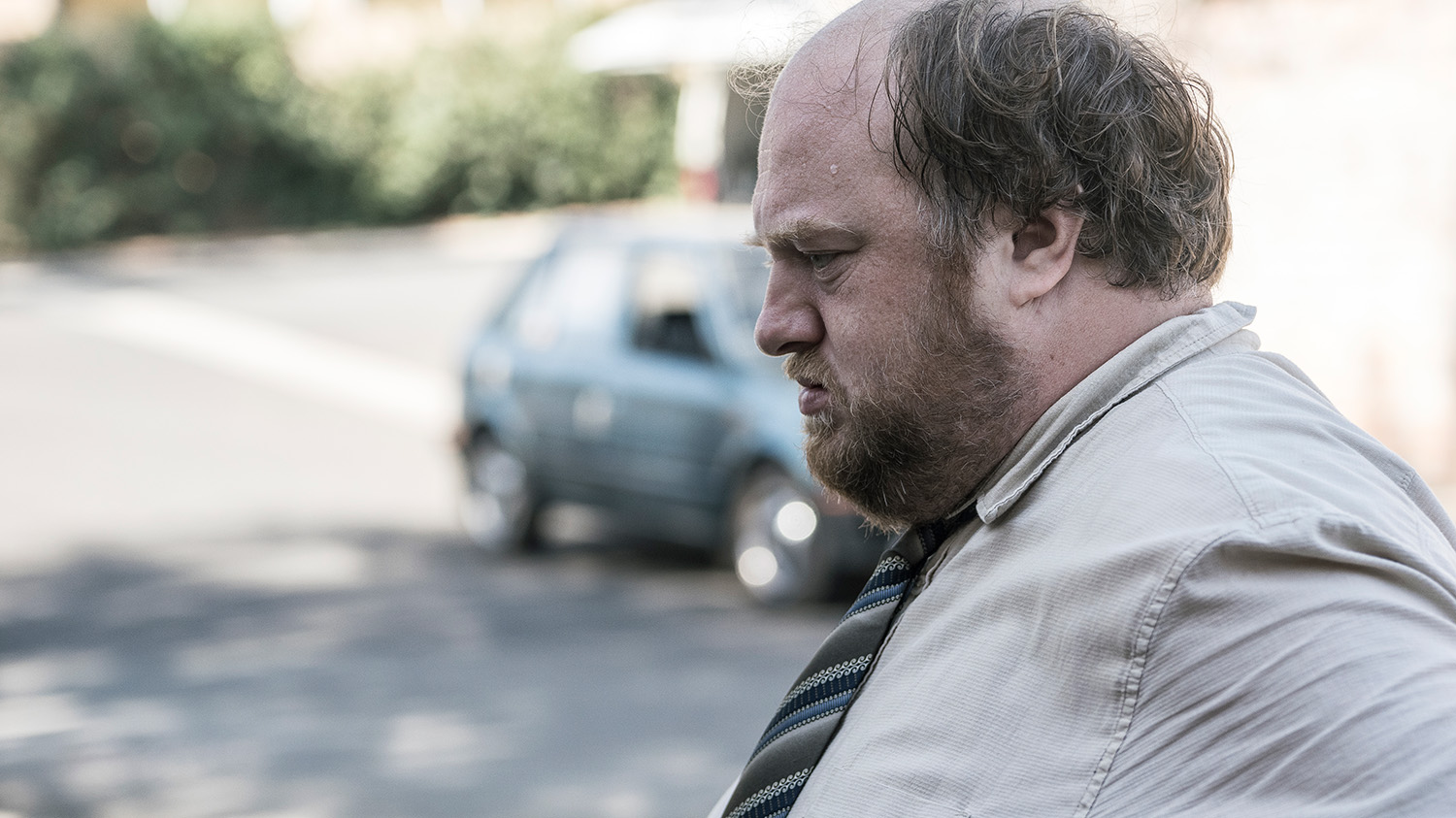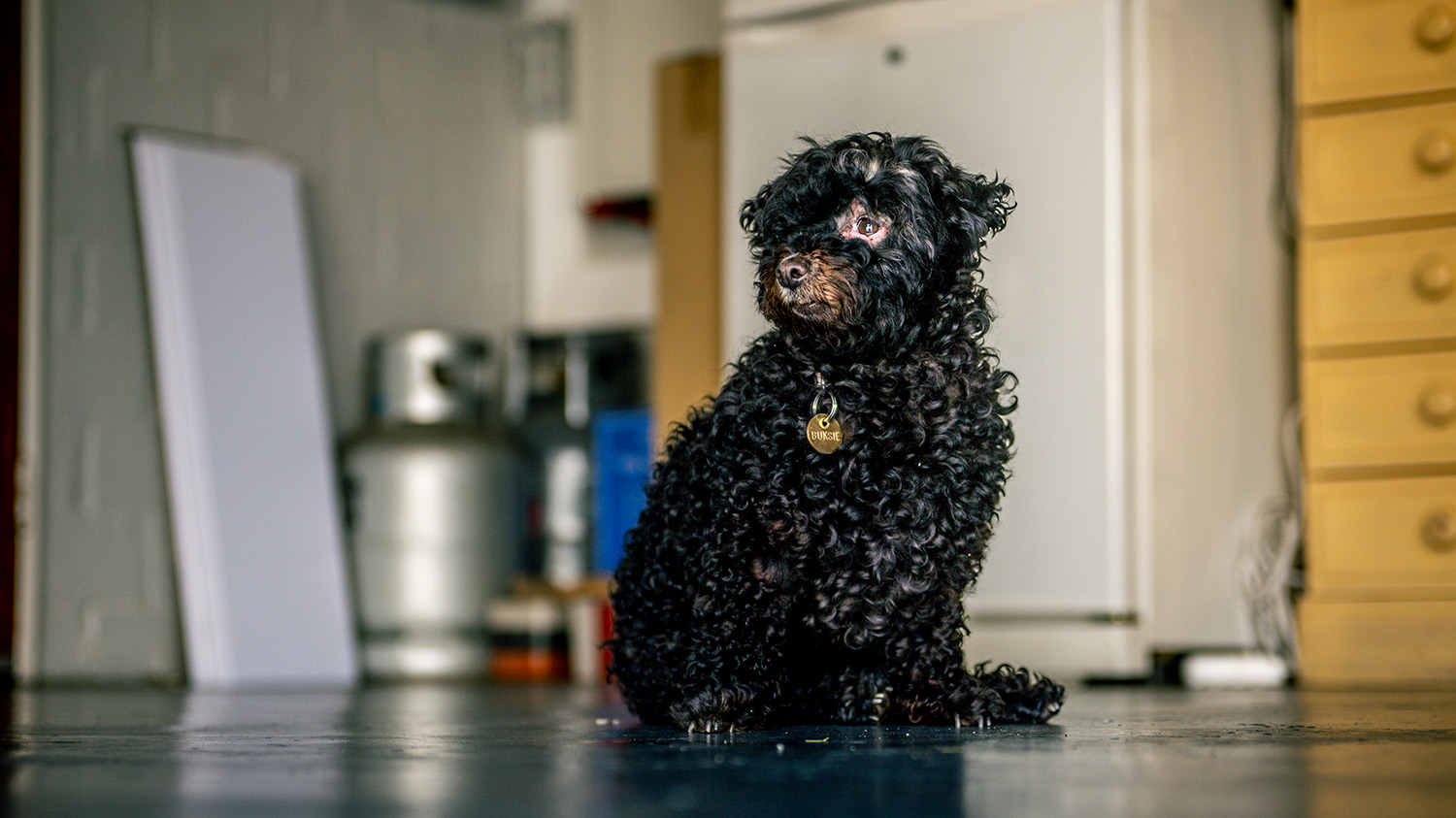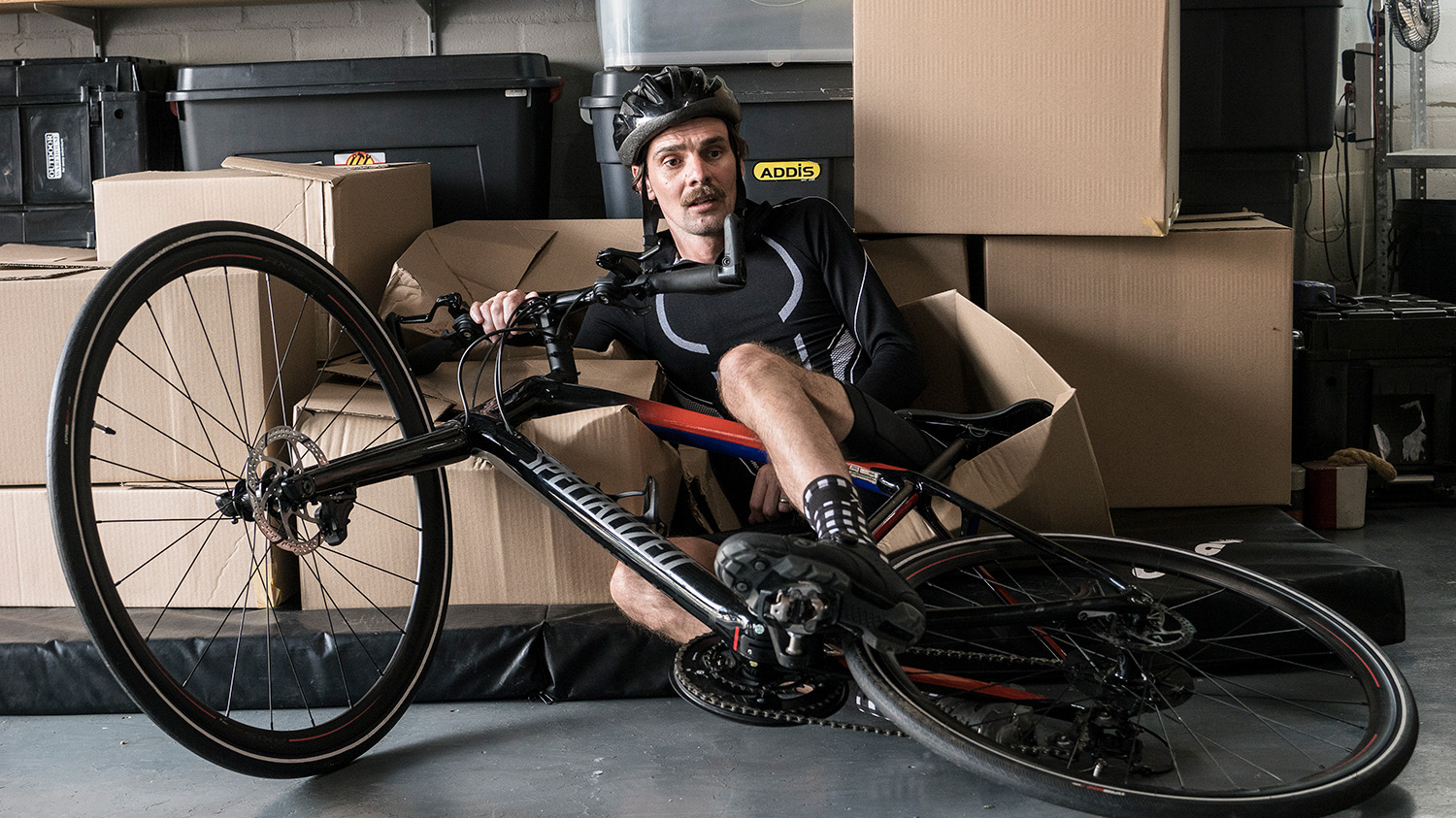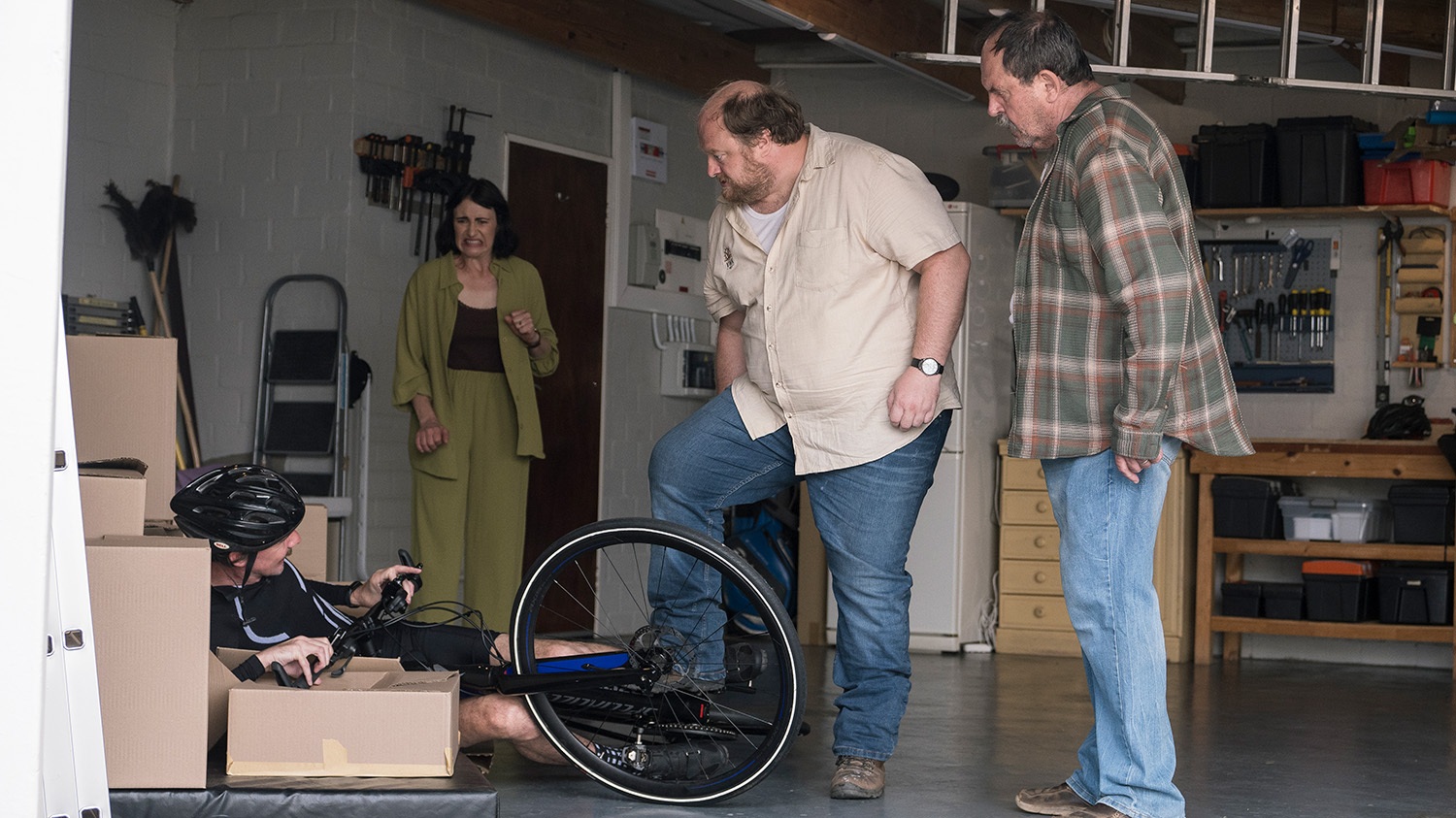



Shotgun short film: Baas se honne
With a soundtrack by Peach van Pletzen and a cast that includes screen favourites such as James Borthwick and Albert Pretorius, Bennie Fourie, the screenwriter, director and co-producer of Baas se honne, creates a dark comedy that extracts the divine from the ridiculous. The story is about Gys (Pretorius), whose messy life landed him in a dimly lit corner. His boss, Roelf (Carel Nel), must take care of and clean up after a puppy he emphatically never wanted. He now forces Gys to do his dirty work for him and put Buksie out. If Gys refuses, his job will be on the line. Gys must make a plan, and quickly …
Bennie talks about this dark comedy.
Where did you get the idea for Baas se honne?
I won’t mention any names! But somebody I know very well was put in the position of having to put out his employer’s dogs. The boss didn’t want his wife and children to know about anything, because his wife got the dogs against his will, so he wanted to pretend that the dogs ran away. But this was only the jumping board for this story. The idea that someone could ask such a thing and expect it to be done, was just so absurd. I then started thinking of all the things that could go wrong.
As a dark comedy, Baas se honne is significantly different from your previous work. What made you decide on this approach?
I love dark tales and I am attracted to stories where people find themselves in difficult situations that play out even darker than expected. I am used to comedy, but I am very dependent on dialogue-driven comedy, and with Hotel, Taktiek and Vuil wasgoed, I relied heavily on jokes in the dialogue. This time around, I wanted to challenge myself to make a film focusing on the action rather than the dialogue for the humour. I wanted to see if I could succeed in creating a slightly more serious comedy, like what the Coen brothers did so well with Fargo and those type of stories. I didn’t want to undermine the comedy by relying primarily on dialogue.
The casting of Albert Pretorius as Gys is spot-on – did you write the character with Albert in mind?
I absolutely wrote with Albert in mind throughout. Albert has always been a brilliant actor, but I never had the opportunity to work with him for more than one day when we once shot an advertisement. Over the years, we became good friends in the industry, and I am thrilled by his work. As an actor he offers a range of variations in his character portrayal, so I knew it would be incredible to let him loose on this storyline and see how he responds and interprets at will.
It was a battle to get hold of him, because he was busy with quite a few projects, but I took him for a beer and said, ‘Listen, I don’t see anyone else doing this. And I don’t want to.’ But that wasn’t the biggest challenge! The biggest issue was that Albert is allergic to dogs. So I told him, ‘That will be no problem; in fact, it is an opportunity.’ I then added the allergy topic to the story. His concern was that he would break out in a rash and that the production would suffer, but we put stern precautionary measures in place. For example, we picked a hypoallergenic dog, Albert wore gloves, and we had to be firm to prevent him from wanting to hold the dog all the time.
The soundscape reminds a lot of the 2014 movie with Michael Keaton, Birdman. How did you and Peach van Pletzen go about the soundscape?
I loved Birdman, as well as numerous other movies that also don’t make use of melody in the soundscape. Rhythm has a different effect on the viewer. Rhythm creates tension and fear, while melody sometimes dictates how one should feel, and I don’t like that, especially with regards to this project. So, my brief to Peach was, yes, I like Birdman’s soundtrack, and while writing, I was listening to it, but I don’t want us to imitate it. It should be our own version. And I am happy that we eventually came up with something powerful. I like that very much.
What did you as an established storyteller learn from the process?
No matter what you have done before and how many times you did it – you will always face restrictions. I think I have realised once again that, yes, I will have to sacrifice things, but what will be the best compromise? How can you make something work with what you have available?
We had very little filming time, but the compromise involved the fact that I had three months available for preproduction. Therefore, I could create a complete storyboard and I made a shot list to secure all the necessary building blocks for the narrative, but I still left room for changes on the day of shooting. I really learned how to make use of what was at my disposal. If you won’t have enough time on the day of filming, let the preproduction process work to your benefit. Put together the references in the best way possible to ensure everybody is on the same page.
Part of the solution must surely be to surround yourself with brilliant people?
Yes, that has always been part of the plan, like with Jorrie van der Walt, the co-producer. Ten years ago, Bouwer Bosch and I made Vuil wasgoed for the Silwerskerm Festival, and Jorrie filmed it for us. I have always wanted to work on another project with him, and when I proposed this one, he pulled out all the stops. He really did an amazing job in getting the best people together.
Do you have plans, like with Vuil wasgoed, to develop this short into a full-length feature film?
We want to turn it into something bigger and we plan to enter it for all film festivals, and we will write a full-length screenplay to take it further.
I have already completed 65 Hotel episodes and 13 of Taktiek, but I have never directed a feature film. But I want to undertake it when the right project comes along, I don’t want to do it just for the sake of doing it. I think this is the closest genre in which I would want to tackle something like that, but there must be enough money to realise one’s plans for such a project. So, that is the dream.
